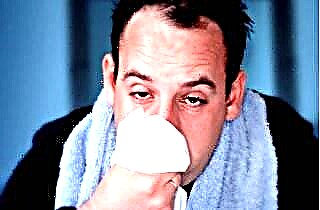Tachycardia is a type of sinus arrhythmia in which a person's heart rate increases. Normally, this figure is 60-80 beats per minute. A similar condition occurs with high blood pressure, significant physical exertion or emotional stress. A characteristic manifestation is a feeling of a rapid heartbeat: the heart seems to jump out of the chest. In most cases, tachycardia is not considered a pathological condition and does not require treatment. At the same time, if such attacks appear too often, especially at rest, there is a reason to think about a planned visit to a cardiologist.
What effect does the drug have?
Validol is one of the most common drugs in our country, which is used not only for heart palpitations, but also for other arrhythmias, as well as for relieving angina pectoris, headaches while taking Nitroglycerin, as a sedative for neurasthenia, vegetative dystonia and even with insect bites.
Actually, "Validol" is a trade name. The active ingredient is menthol dissolved in isovaleric acid methyl ester.
"Validol" belongs to the group of reflex vasodilators. The molecules of the substance, falling on special chemical receptors in the mucous membrane of the mouth, have a stimulating effect. As a result, the processes of synthesis of the so-called "pleasure hormones" - endorphins, dynorphins, enkephalins, are activated in the brain. They affect the nervous system in a calming manner, thereby lowering the pulse and blood pressure.
Also, under the influence of the irritating effect of Validol, other biologically active substances are released, for example, histamine and kinins. One of their main effects is vasodilation, due to which angina attacks are stopped.
Validol is absorbed under the tongue (sublingually), so its effect begins within a few minutes. For adults, a single dose is 1-2 tablets, 4 tablets can be taken per day. and more. If a therapeutic effect is not observed, a different drug must be selected.
Should I take Validol for tachycardia?
"Validol" for cardiac arrhythmias is taken quite often, due to the cheapness and long-term experience of use. It should be remembered that this drug acts only on the nervous system and not on the heart muscle. In this regard, "Validol" with palpitations helps with the neurogenic origin of increased rhythm. If the cause of the tachycardia is associated with a defect of automatism, the drug will be completely ineffective.
So the usual remedy can not always solve the problem. In some cases, due to the placebo effect, it also relieves cardiac arrhythmias, but this is more a minus than a plus. Thus, the drug masks the true cause of the rhythm disturbance, which leads to its aggravation and the appearance of complications, while the patient will not go to the doctor.
That is, if tachycardia develops due to nervous tension, Validol will be a good answer. But if a faster rhythm appears in calmness, this is an alarming sign. Very often, a feeling of an irregular heartbeat can be a symptom of other, more dangerous arrhythmias - extrasystoles, atrial blockade or atrial fibrillation. In such a case, you should consult a doctor, since the prescription of more potent antiarrhythmic drugs will be required.
In addition, like any medicine, Validol has its own contraindications. Moreover, each person may have an individual drug intolerance. If after taking you are worried about a rash, itching or other allergic manifestations, you should immediately stop treatment and seek qualified help.
It is not recommended to use "Validol" together with alcoholic beverages, as this can cause unpleasant side effects such as nausea, dizziness, headache.
The medicine is not included in the protocol for the treatment of coronary heart disease, myocardial infarction, since Validol does not in any way affect the mechanism of pathogenesis of these diseases, has no evidence base and proven effectiveness in terms of prolonging life and improving its quality.
Another contraindication to use is acute cerebrovascular accident: strokes and transient attacks.
The drug is allowed to be taken with tachycardia during pregnancy. However, it is recommended to carefully monitor the dosage and be sure to consult a specialist.
Conclusions
Tachycardia is one of the most common heart rhythm disorders. It is a normal response to the activation of the sympathetic nervous system and the release of adrenaline. At the same time, it is a common symptom of such psychosomatic diseases as vegetative-vascular dystonia, neurasthenia. Often this condition occurs during pregnancy.
"Validol" with a banal heart palpitations is the most popular remedy due to its cheapness and the absence of side effects and serious contraindications. At the same time, doctors often doubt its effectiveness. In any case, before taking any drug, you should consult a doctor, because only he can really determine the need for a specific prescription.



